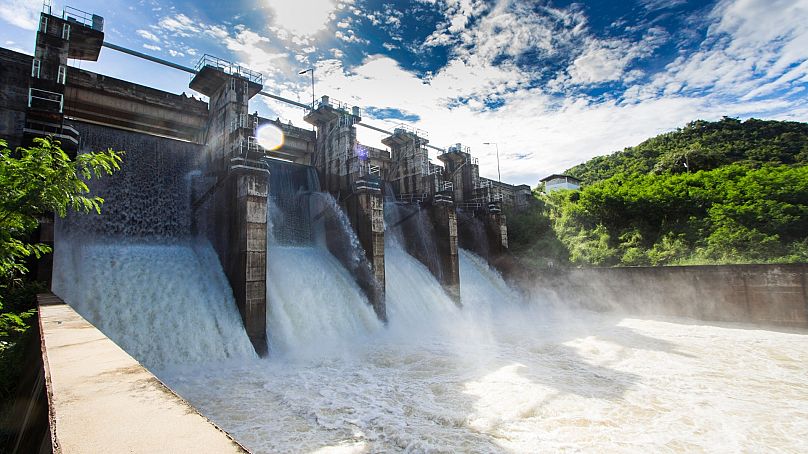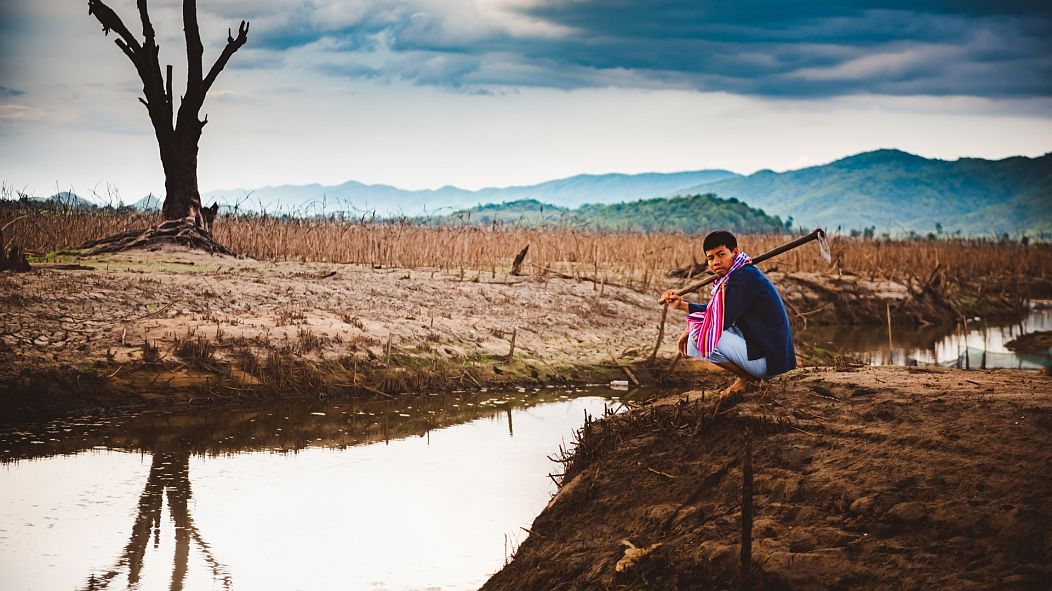This World Water Day, Director General of the International Water Management Institute (IWMI) Dr. Mark Smith explains why water management could save lives and the planet.
Having put millions more people at risk of acute hunger, the COVID-19 pandemic has set the stage for a now-or-never year of rethinking the entire system behind food and nutrition.
As we recover from the pandemic and put in place measures to prevent future crises, 2021 will see countries commit to making food systems more equitable, nutritious and resilient at the UN Food Systems Summit.
Meanwhile, countries must also reconcile a rising demand for food with the race to cut carbon emissions and reverse the loss of global biodiversity, which will be centre stage at the COP26 climate talks and the UN Biodiversity Conference.
Environmental targets will depend on progress in the way the world manages water.
Advances towards a fairer, stronger, healthier food system that also meets environmental targets will depend on progress in the way the world manages water, which is omnipresent from field to fork, and a decisive factor in the health of people and planet.
We’re not on track to meet our water goals
Yet we are off track to meet the goal of ensuring water and sanitation for all by 2030, as set out in UN Sustainable Development Goal 6, with many water sources becoming unreliable, more polluted, or both.
Food systems cannot simply be transformed in and of themselves. Achieving a balance of meeting human needs without exhausting natural resources will not be easy, but I believe it is possible by treating food, land and water as a complex and interconnected system.
To mitigate the trade-offs across different needs, governments and all other players should recognise, reassess and rationalise the role of water at every stage.
To begin with, this means fully accounting for the water supplies needed for food systems, and strategically managing water infrastructure, including ecosystems and aquifers (underground layers of rock, from which groundwater is extracted).

Given the growth of water-intensive industry, agriculture and energy generation, it is vital that governments and authorities develop an understanding of water as a finite and valuable resource that needs to be managed across all its uses.
It is vital that governments and authorities develop an understanding of water as a finite and valuable resource.
Agriculture, for example, accounts for 70 per cent of freshwater use, and water for food is often equated to managing water on farms. However, this is a simplification that overlooks the benefits for people, climate and nature of managing water across the whole food system – from supply of water to production and consumption.
The value of the world’s wetlands in terms of supplying and storing enormous reserves of water runs into the tens of trillions of dollars, and yet around a third have disappeared since 1970 – largely down to the expansion of agriculture.
Investment is crucial
Investment into research dedicated to the conservation of wetlands and aquifers, and to the operation of dams and reservoirs, can help uncover the strategies and policies countries need to better store water and allocate it among its diverse users.
In the interests of both strengthening food and nutrition security and preserving precious ecosystems, national plans for transforming food systems would do well to include nature-based solutions, such as the restoration of wetlands, to protect water supplies.
Beyond securing the source, transforming food systems also means transforming the ways in which water is used in food production. With more than 80 per cent of agricultural land reliant on rain, which is becoming increasingly less predictable, irrigation may seem like an obvious solution.
But while irrigation will continue to play a vital role in reducing vulnerability to water scarcity, its expansion must also factor in water availability so that, over the long term, irrigation does not exacerbate the problem it was intended to solve by exhausting reserves.
These complexities require the balancing of climate risks with current and future demands on water. The upshot is that feeding 10 billion people within planetary boundaries will need major improvements in water productivity in agriculture, or in other words, producing more from what we have. Climate change may even mean the abandonment of irrigation where water resources become unreliable, and expansion where water is likely to remain abundant.

Striving towards universal access to water
If the world’s food systems are going to successfully provide healthy and nutritious diets for all, then universal access to safe water supplies is essential.
Poor sanitation and hygiene are linked to an estimated four billion cases of water-related disease and 3.4 million deaths every year. A food system that ignores the quality of water will mean that the 2.2 billion people without access to safe drinking water will be left behind.
Water plays a defining role in the food system, from the ecosystems and infrastructure that provide and store the source, through irrigation, water for fish and livestock, and finally to the preparation of our meals. Consequently, global, regional and national talks on food systems cannot deliver on their high ambitions if water is left out.
The planet will dehydrate before it starves, just like people.
In the lead up to the Food Systems Summit, international agencies will hold a “Global Dialogue” dedicated to the role of water in food systems, providing critical insights into how to manage and leverage this precious resource for the benefit of people, climate resilience and ecosystems.
The planet will dehydrate before it starves, just like people. This should be the year that we seize the opportunity to ensure that water becomes central to all policies, investments and commitments made to deliver the Sustainable Development Goals by 2030.
